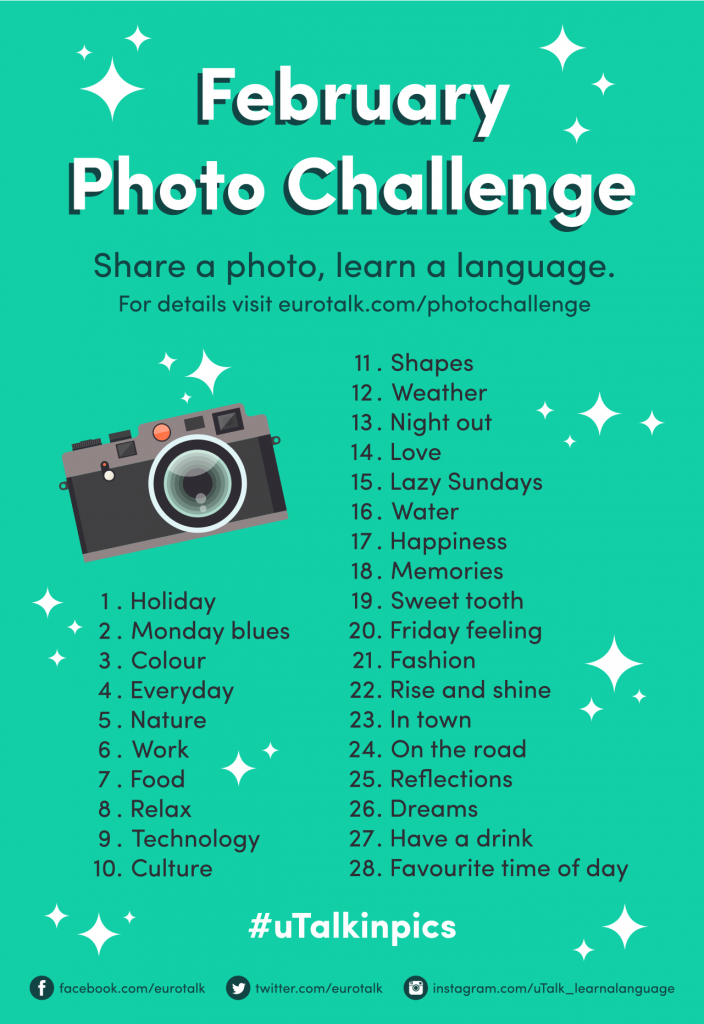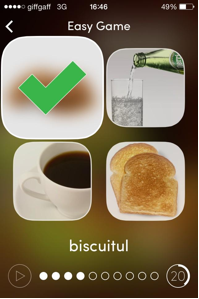3 great TV shows for learning Spanish
After two years of barely pulling an ‘A’ in my Spanish class, I decided to start studying more. I had a really bad problem when it came to listening to Spanish. Mostly because I couldn’t understand the language. So over the summer I watched a couple of Spanish TV shows, and found them very interesting and extremely beneficial when it came to understanding the language. Being able to watch a TV show in a foreign language is a great feeling, so I urge people to learn the vocabulary. Following this list means that you can start enjoying this amazing gift.
As a forenote, I learned Spanish so I am using Spanish examples; however I will add my favorite genres for learning, in order of importance. If you would like to find a language, Google search ‘watch television shows free’ or ‘popular television shows in X’. This has to be done in the target language of course. Now without further ado…
1. ¿Dónde está Elisa? (or just Dramas)
Dramas. The characters use a TON of expressive body language. This is my best choice when it comes to learning how to hear a language. You won’t sit there completely bored as you practise, and also because it’s a television series, people are always talking and you can use previous context.
2. La Fuga (Action series)
Technically, this show isn’t an action series. It’s another drama, but it’s set in the future of a prison. People die and there’s fighting in it, so I think it should be action. Anyways, once you can start to understand what’s happening in your drama series, then I recommend exploring different dramas. For me it was action, because I love thrillers and suspense.
The main benefit of switching genres is your entertainment. There are so many different genres, it shouldn’t be hard to find something that you like. You’ll have fun watching it, learn a couple of phrases, and become one step closer to having conversations with natives.
3. Aquí no hay quien viva (Comedies)
Comedies should absolutely be saved for last on your list of genres to watch. The body language can be deceiving and it is very difficult to understand what is happening. On the up side, once you understand words, it can be very pleasing to watch. I love Aquí no hay because a ton of episodes are free on YouTube, and also it makes me laugh. It reminds me of watching Seinfeld, but it’s in Spanish.
—
This is the order I used to increase my language abilities. I highly recommend that you watch TV in your target language at some point. It’s a great accomplishment to understand what they are saying; however I should warn you because watching too much television can hinder your progress. Speaking is ultimately the best practice, but it is good to take a break and watch some television from time to time.
Do you watch TV as part of your language learning? Please share your recommendations in the comments.
Ray Jones
Read more from Ray on his blog at themodernlingo.com.
—
Want to join the EuroTalk blogging team? We’re always keen to hear from language enthusiasts with something to share. Email liz@eurotalk.com for details.
8 ways to remember new vocabulary
Let’s start with a bold statement: everyone is good at languages.
I know lots of people are probably disagreeing with me right now. But the fact is, we all learnt our own language, so technically we should be able to learn another one. Right?
Of course there are lots of elements to becoming fluent in another language. Grammar. Sentence construction. Tones (for some languages). Perfecting your accent. Reading. Writing. Learning colloquial expressions. I could go on.
But let’s start at the beginning. Before you tackle any of this daunting list, you need to learn some words, or you’ll never get anywhere. And for a lot of people, a little bit of vocabulary is often enough to get by with – I survived a weekend in Naples with just a handful of essential Italian words, like ‘please’, ‘thank you’, ‘water’ and ‘cake’. (What do you mean, that’s not an essential word?)
And having spent January learning German with the uTalk app, I now feel like I could at least make myself understood in a restaurant, a shop, the hospital – although let’s hope that’s not necessary! – and I also know how to buy a train ticket or ask for the nearest cash machine. I might be far from fluent, but this is a big step for someone who knew no German at all a little over a month ago.
So, learning vocab is important. But what happens if you’re not very good at remembering stuff? Another language can look pretty terrifying at first, particularly if it’s one that bears no resemblance at all to your own. So here are a few tips for memorising new words.
The facial expressions are optional…
Start with the basics
This probably makes sense anyway – why would you learn how to say ‘Do you prefer reading or TV?’ before you’ve figured out ‘Hello’? But it’s amazing how much of a boost it is just to have a few simple words under your belt. That way, you know at the very least, you can greet someone in their own language, even if you don’t know how to say anything else.
Take it a bit at a time
Don’t try and learn everything at once. Even if you remember it at the time, by the next day your brain will almost certainly have rebelled and forgotten it all. So break it down into topics, and focus on one a day, or a week – whatever works best for you – remembering to come back to it at regular intervals to revise and make sure it’s all still in there.
Try to link it to a memory
When I find myself in a real-life situation, I try to think of how to describe it in the language I’m learning. The other morning, for example, when my train was delayed, I amused myself by remembering how to say it in German. (Yes, I’m that cool.) And now when I think of that phrase, it springs more readily to mind because I can imagine shivering on the station platform, waiting for a train that may or may not show up. It did… eventually.
Associate words with images
Another good tip – try and link words to an image or object in your mind, as it makes them easier to recall later. Even better, stick notes on things you see every day, so that when you need the word you can visualise the object with its translation attached.
Make it a game
This could be a game against someone else – see who can remember the most words, you or your friend – or against yourself, but it’s amazing how effective it can be at hardwiring the vocabulary into your brain. And the best bit is you don’t even need to win the game to be successful… The memory game in uTalk is notoriously difficult, particularly if your memory isn’t the best. I struggled with the fruit and vegetables sections, for some reason; I just couldn’t remember where they all were when the cards were covered, and after the tenth attempt, I was ready to throw my phone across the room. But by the time I was done, I knew all the names of the fruits and vegetables forwards and backwards, and can’t see myself forgetting them any time soon.
Try and connect it to your own language
Even if the language you speak every day is completely different to the one you’re learning, use your imagination. For ‘I had a good time’, which is ‘Mir hat es sehr gut gefallen’ I found the only way to remember it was to think of it as ‘my hat is very well fallen’. It makes no sense, but it works for me!
Talk to other people
Sometimes, telling someone else how to say something can help to cement it in your mind, even if they have no idea what you’re saying. I’ve been cheerfully saying random German words to my startled family and friends for a month now, and although most of them have no idea what I’m talking about, it helps me to say the words aloud to someone other than myself.
Study before you go to sleep
I don’t know if this will work for everyone, but I found it was quite effective. By revising the vocabulary at night before I go to sleep, I find it’s fresh in my mind when I wake up. Probably not recommended if you have trouble switching your brain off at night (not something I have a problem with, clearly).

Does anyone have any other tips for remembering vocabulary?
Liz
The uTalk language challenge – how did you do?
The uTalk language challenge for January comes to an end on Saturday, and we’ve loved hearing about everyone’s progress! Check back here next week to see how we all got on here in the office (trust me, you won’t want to miss that), but in the meantime, we asked a few of our most enthusiastic competitors to tell us how they got on.
Has anyone else taken part in the uTalk challenge? Did you enjoy it, and most importantly will you be continuing with your new language? We’d love to hear from you, so please share in the comments 🙂 And if you missed it this month, it’s never too late to start – uTalk is available from the App Store, and you can start learning your first essential words completely free.
Don’t miss our February photo challenge, which kicks off on Sunday!
Now over to our uTalkers 🙂
Ingrid, learning Serbian
I’ve really enjoyed doing the challenge. Serbian is a language I’ve wanted to get to grips with for a long time for quite a bizarre reason (it involves a love of the Eurovision Song Contest!) but I haven’t really known where to start.
The app’s been great, although I’d recommend using it on an iPad rather than an iPhone if you can. Oh, and the range of languages available is amazing!
It’s been slow-going – well it’s a tricky language! – I tried to do some in my lunch-break and on my commute but it was generally too noisy to concentrate. I have a trip to Belgrade planned for early April and it would be so nice to communicate on even the most basic level in their own language, so I’ll definitely be keeping it up.
Patricia, learning Icelandic
My name’s Patricia and I’m from Montreal, Canada. I’m the happy owner of a wonderful Icelandic horse, Léttfeti. I’ve been riding Icelandic horses for four years and I’ve been to Iceland. And I absolutely love Björk 🙂 I took up the uTalk challenge so I could begin to learn more about the Icelandic Horse breed, about Icelandic riding and about Iceland in general. I hope to go back there soon.
The uTalk app is a whole lot of fun, filled with useful words and phrases. I particularly enjoyed repeating the words and phrases after the native speakers and then hearing my own voice. What a great tool to gain confidence and improve pronunciation! I also really liked the Iceland module, which contained many words and phrases pertaining to things that are specific to Iceland.
The app is very visually pleasing. It works offline, which is great for learning on planes, subways and other areas without internet. This app can also be used as an offline dictionary, which I find particularly useful. Thank you for this opportunity and I’m looking forward to the next Challenge!
@EuroTalk I’m getting the hang of it! The Icelandic pronunciation is so much fun! #NewYearNewuTalk pic.twitter.com/znHaX1hNy6
— Patricia Ochman (@speedbird_o) January 20, 2015
Alex, learning Romanian
I found it really fun learning some basic Romanian, especially because I’ve been able to greet Ioana each day saying ‘Buna Ziua’, and trying out a few random words on her. I found the speaking and recall games the most useful as you can check you actually know the words, rather than passively recognising them. The memory game, on the other hand, is the bane of my life as I always manage to forget where one thing is and miss the full score. Overall, I’ve found uTalk really fun and easy to use at the gym while I’m on the bikes or during my lunchbreak.
Jacqui, learning Croatian
I first discovered EuroTalk when my children were involved in the Junior Language Challenge in 2010, and, as a language graduate, was very impressed with how easy it was to master the basics. Since then, I have never quite prioritised the time to learn a new language myself, so when I heard about this month’s challenge for adults, it was just a matter of picking which one to try.
Why Croatian? It’s a country I quite fancy visiting, and as I’ve never attempted a Slavic language before, it seemed like a worthy contender for the challenge. Come 1st January, it soon became clear to me that Slavic languages do not have much immediately in common with either Romance or Germanic ones, and it often felt more like a string of tongue-twisters with some different accented letters to add into the mix for good measure. Daunting, yes, but I wasn’t going to let it beat me. I discovered that standing in the middle of the room and declaiming the words in theatrical fashion was quite effective!
After a month, I’ve made great progress. I haven’t earned maximum points (I’m on just over 4000), but I have managed to learn a lot more than I thought I would, even waking up some mornings with various phrases springing to mind! This achievement wouldn’t have been possible without something like the uTalk app. The approach of listening and repeating with a few simple games just works at this level of language acquisition.
The good news for me is that I’ve now booked a short break to Croatia in the summer – make mine a ‘čaša šampanjca, molim vas’.
Katherine, learning Czech
I chose to learn Czech as it was a completely new language to me, and I will be visiting there later in the year, so it will be fun to try out a few phrases!
I have found the app quite addictive – as soon as I’ve got a good score in one topic I want to get started on another one! The games really help you to learn quickly, and although I can’t pretend to remember every word, it will be easy to brush it up again later. So, a great challenge, and good fun!
The EuroTalk February photo challenge
Following the success of this month’s uTalk challenge, we’ve decided to have another one! But this time it’s open to everyone, and hopefully requires a bit less brain strain…
Introducing the EuroTalk February photo challenge!
How does the challenge work?
1. Each day, starting from 1st February, you’ll get a new theme, and you need to share a photo that reflects that theme on one or more of your social networks – more on that in a second. Try and interpret the theme in a fun, creative way, as we’ll be sharing our favourites over the course of the month, choosing a Photo of the Day each day and selecting an overall winner at the end of the month.
2. When you share your photo, tell us how to say whatever’s in your picture, in another language. It can be any language you like; you can even do a different one every day if you want to, as long as it’s not your own. And remember to tell us which language it is too!
3. Use hashtag #uTalkinpics to let everyone (including us!) know you’re taking part in the challenge.
Example:
My photo for #Holiday – sunset, or der Sonnenuntergang in German 🙂 #uTalkinpics
Where should I share my photos?
4. You can share your photos on whichever social network you like – Facebook, Twitter, Pinterest, Instagram, anywhere… But to be considered for Photo of the Day and overall winner, you’ll need to use one of the following:
- Tweet us @EuroTalk
- Tag us on Instagram: @uTalk_learnalanguage
- Post on our Facebook page
- Email your photo to us at challenge@eurotalk.com if you don’t belong to any social networks
And remember to use hashtag #uTalkinpics
What if I miss a day?
5. If you miss a day, or don’t find out about the challenge until it’s already started, it’s no problem. You can catch up by posting more than one picture per day – or just skip that day altogether and carry on.
How can I win?
6. We’ll choose our Photo of the Day the following morning (or possibly on Monday for photos submitted over the weekend), to allow entries right up to the end of the day from every time zone. This will appear on Facebook, Twitter and Pinterest, as well as in a weekly round-up here on the blog, so be ready to share your glory with the world!
7. At the end of the month, we’ll choose our overall winner to receive a cool prize. This will be someone who we feel has really got into it and had some fun. The winner will be chosen by the EuroTalk team and our decision is final 🙂
Spread the word!
8. Please share the challenge with friends, and let’s get the world talking lots of different languages…
Good luck, and have fun – we can’t wait to see your photos!
My uTalk Romanian journey so far
Having a look at the uTalk challenge scoreboard in the EuroTalk office, it looks like I’m some way behind with my Romanian learning. But I haven’t give up yet! Here’s what I’ve learned so far about this language.
1. It’s a lot like Italian
This is very helpful for me, as I already understand a reasonable amount of Italian (even if it’s only from watching too many episodes of Inspector Montalbano…), so words like ‘la rivedere’ (goodbye, like the Italian arrivederci), ‘buna seara’ (good evening, like buona sera in Italian) and many colours and adjectives are very similar (‘urata’, ugly, sounds like the Italian word brutta, and many others like ‘plin’/pieno, ‘trist’/triste, ‘rapid’/rapido, ‘negrul’/nero or ‘verdele’/verde). Numbers are also very close to those in Spanish or Italian.
2. Sometimes you can make words just by adding ‘ul’ to the end
Ioana helpfully informs me that this is just the masculine ‘the’ (the feminine is ‘le’), but it still seems like a reliable strategy to guess words. After words such as ‘trenul’, ‘aeroportul’, ‘pasaportul’, ‘doctorul’ and my personal favourite ‘biscuitul’, I started guessing other words like ‘vinul’ (correct!) and ‘mapul’ (sadly incorrect), which occasionally works.
3. The speaking game is really fun and addictive, and probably the best way to learn
I don’t know about other people, but for me, producing the language is the key to remembering it. So, speaking or writing the language is key. Repeating the phrases and then using my own recordings to identify the pictures is weirdly fun and helps me to remember better than simple guessing of pictures in the easy or hard games, which encourage recognition but not reproduction. Of course the ultimate test is the recall game, where you have to remember and say the word or phrase yourself and then check it. These games can take a while to get 100% on, but are an excellent tool.
4. You have to learn to make some brand new sounds
Romanian has a few fun letters that we don’t have. ‘â’ (with a little hat) sounds like an ‘uh’, not an ‘a’ at all. So ‘Cât e ceasul?’ (what’s the time) isn’t pronounced how it looks to English speakers, but like ‘Cuht e chassul’, because the â is a different letter, and ce is a ‘ch’ sound like in Italian. It also has a funny ‘I’ which looks like this: î and sounds like another ‘uh’, which is difficult to describe. This sound is in words like ‘închis’ (closed) which sounds more like ‘unkees’. These sounds are pretty fun to pronounce if you ask me, and Ioana says I sound ok, which I put down to repeating after the native speakers in uTalk.
5. They invented crazy words for vegetables that make no sense!
Ok, maybe that’s a bit harsh, but my knowledge of French, Spanish, Italian, English and German can’t help me when it comes to learning the names of vegetables that have names like ‘bamele’, ‘ardeiul’, ‘porombul’ and ‘varza’, which don’t relate to any language I know. They can’t even call zucchini zucchini: it’s actually ‘dovleceii’.
Somehow I don’t think I’m going to beat Nat in the uTalk challenge, but I’m having fun with Romanian anyway!
Alex
(Editor’s note: it turns out nobody could beat Nat, who completed the challenge in Icelandic a couple of days ago. She’s now considering which language to learn next – any suggestions?)





